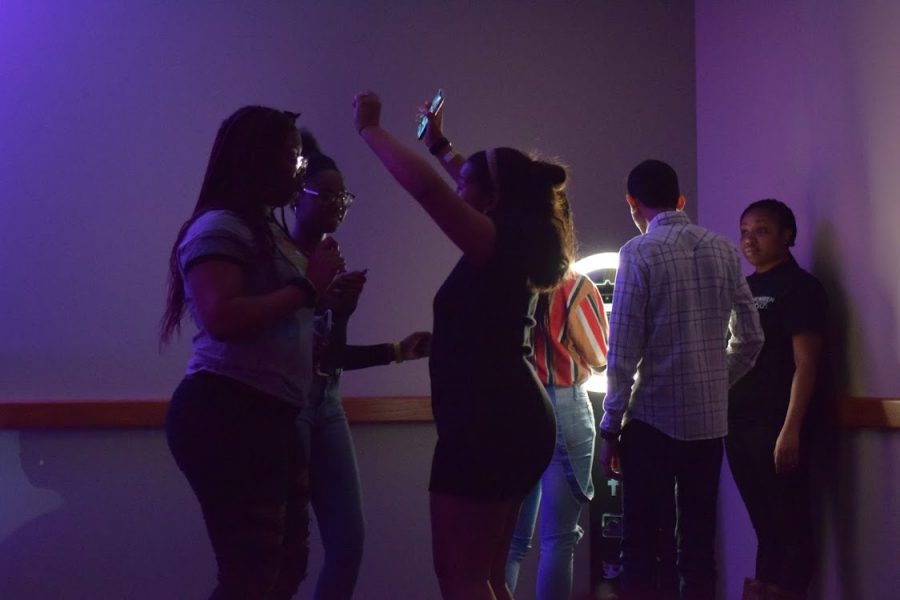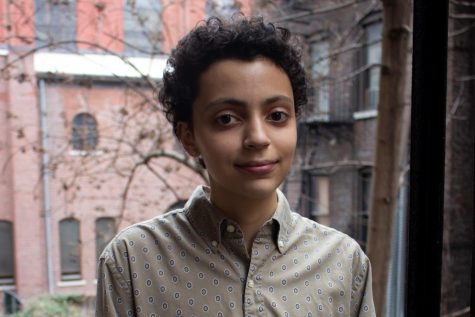Cultural Clubs End Black History Month with Collaborative Celebration
Four clubs came together to host an event with various cultural cuisines and socializing opportunities.
March 2, 2020
On Feb. 27, Fordham Lincoln Center (FLC)’s cultural clubs wrapped up the month with their first collaborative Black History Month Celebration. The Black Student Alliance (BSA), Student Organization of Latinx (SOL), Caribbean Students Club (CSC) and Muslim Student Association (MSA) put together a night full of food, music and dancing.
The night started off with dancing and a DJ playing a mix of old and new R&B and dance music. The four clubs put together an array of different cuisines, including Caribbean, halal, soul and Hispanic food. There was also a photo booth where students could take pictures with their friends.
This event was a space where people of all backgrounds could socialize. Amara McNeil, Fordham College at Lincoln Center (FCLC) ’23, expressed her gratitude for the event: “I really needed to be around black people, so I am thriving right now,” she said.
Though the celebration created a safe space for people of color to get together, this wasn’t an event exclusively for them. Many students brought their friends from different backgrounds to experience the night as well. The room was full of students that participate in these respective clubs, as well as friends and allies who have never been to them.
Maria Jara, FCLC ’22 and vice president of SOL, encouraged students of all backgrounds to participate in cultural events. “You don’t have to be of a certain race or ethnicity to celebrate Black History Month,” she said. Cultural events are meant to provide students with a better understanding of the people who make up their community.
MSA President Reem Farhat, FCLC ’21, spoke on Fordham’s diverse community. “When I talk to people that go to Rose Hill, they tell me that there is a lot more diversity at the Lincoln Center location, but when I go to different universities around Manhattan, I feel like we are lacking in diversity compared to those,” she said.
Jara also shared her perspective on her education and the lack of diversity that follows. “Even though Lincoln Center is pretty small, you don’t really see people, especially of your own kind. So, coming together at one location is nice to see each other and meet,” Jara said, stressing the importance of having these spaces at FLC.
Farhat saw this event as an opportunity for those of different backgrounds to come together and celebrate FLC’s community. “I don’t really have that many opportunities to interact with people of different cultures and ethnicities in my classes, so I feel like this event is a good way to bring everyone together,” she said.
Black history exists in many intersections of everyday life through different cultural identities. CSC President Jemina Molines, FCLC ’21, said this event is important because it “celebrates the different identities and histories that exist in these cultural communities.”
BSA President Ahmari Alford, FCLC ’21, said the black community “has diversity within diversity itself. No identity looks a specific way.” She hoped this event and future ones will allow the Fordham community to learn more about the intersections of diversity.
Farhat shared MSA’s gratitude towards the intersection of people who are black and Muslim. “Black Muslims have contributed so much to Islamic history,” she said. “Even in a modern sense, black Muslims pave the way, like Ibtihaj Muhammad the Olympian and Halima Aden, the first hijabi super model.”
Jara hopes the clubs will come together again in the future. “It will be beneficial because we are a Jesuit school, and going along with the whole theme of coming together as a community, we have to respect each other different ideas and races as well,” she said.














